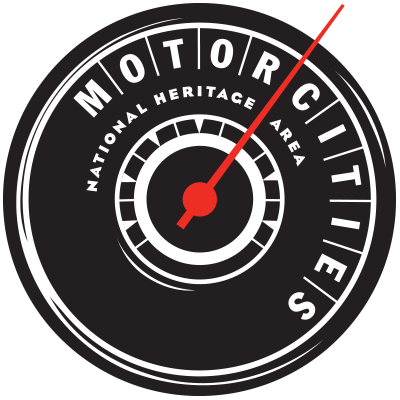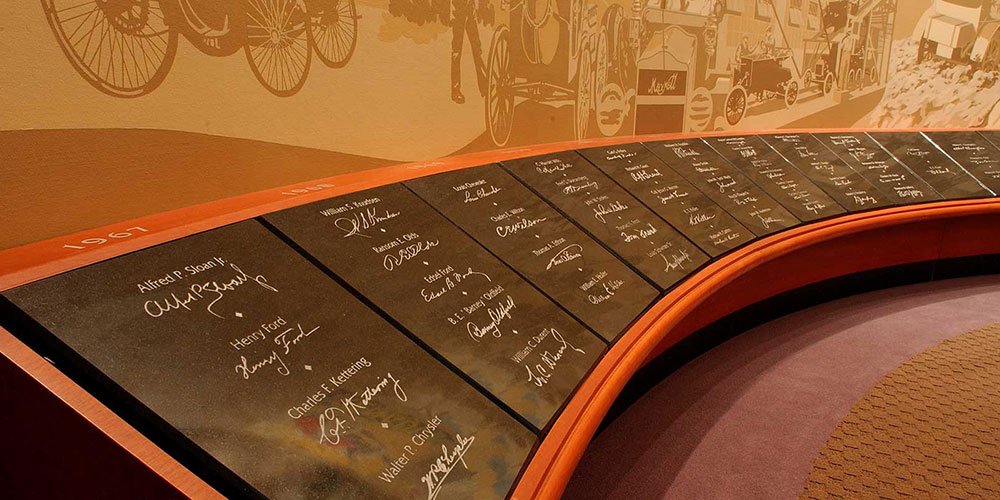By Robert Tate, Automotive Historian and Researcher
Photos courtesy of Robert Tate's collection/National Automotive Heritage Collection
Posted: 12.14.2015
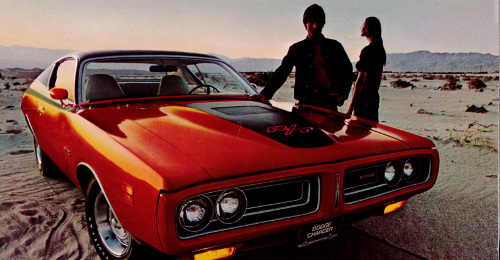 Dodge-Charger
Dodge-Charger
During the early 1970s, the Dodge brand became a very competitive product line within the auto industry.
For 1971, Dodge offered a variety of new styling features and had made several key moves to put its vehicles in more competitive price positions for the consumer market. The 1971 Dodge Charger offered its traditional contemporary, aggressive appearance designs.
The front windshield was moved back at a 56-degree angle to highlight the roof-line while providing an all-around visibility for its driver and its passengers. The 1971 Dodge Charger models were offered in different models including the 500, the R/T and SE models that featured a canted, or tilted, style tail-lamp structure which was a unique design feature for any model during that era.
Color-keyed urethane painted bumpers were available in six colors on Charger hardtop models. Concealed headlamps were standard on the high-line Charger SE models and available as an option on the Charger Super Bee and R/T models. A sun roof was also offered on Charger hardtop models as well.
The Charger 500 model was priced within a median range with a total of 11,948 models produced for the consumer market. The Charger model WH-23 was the least expensive model that was introduced in the Dodge Charger line of vehicles.
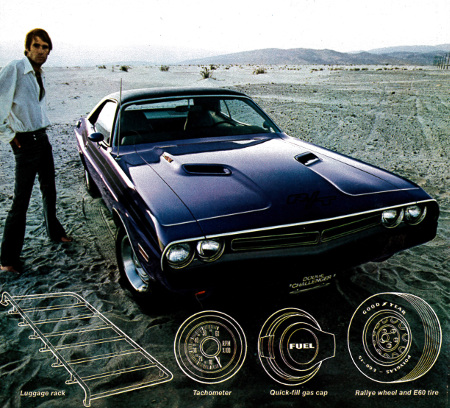 Dodge-Challenger R/T
Dodge-Challenger R/T
The 1971 Challenger and R/T models were very well designed cars for the consumer market. They were high performance models that received a lot of attention from car lovers from all over the world.
Dodge General Manager Robert B. McCurry said at the time, “Challenger has been playing a major role in helping Dodge to achieve a record year in compact sales.”
The popular Challenger cars were manufactured in a two-door hardtop and convertible models. Dodge offered some great conveniences, comfort and safety features for its new 1971 Challenger models.
Those Challenger models offered a short rear deck along with a long hood that had retained its distinctive low silhouette, aerodynamic designed theme for 1971. The recessed grille was split into a pair of narrow, horizontal rectangles to simulate air scoops. The interiors were new and vinyl bucket seats were offered with a bench-type seat featuring a center fold-down armrest. The seats were also offered in combination cloth and vinyl trim or in leather.
Officials for the 55th Indianapolis 500 were so impressed with Dodge’s new line of muscle cars, they chose a Challenger convertible as the official pace car for the 1971 race.
The 1971 Challenger models had a suggested retail price of $2,706. The Challenger models were designed by the late Mr. Carl Cameron, who was a great friend of mine, along with other talented designers as well.
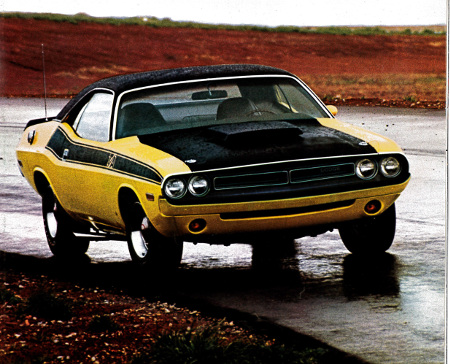 Dodge-Challenger T/A
Dodge-Challenger T/A
The Challenger T/A model (see photo above) was an advertising campaign that Dodge had created, and the model was never manufactured for the consumer market. It was used to get consumers into the Dodge dealerships.
They called it “The car that never was.” This was a 1971 Dodge model using the 340 engine with a 4-barrel carburetor that was planned and appeared in advertising but was not produced since Dodge had left the racing series. Today, this advertising image has become a Dodge heritage icon and is very popular among collectors and enthusiasts.
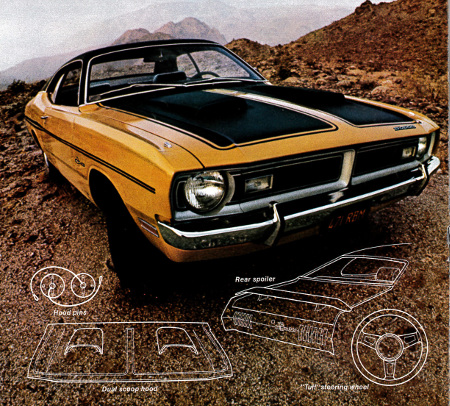 Dodge Demon
Dodge Demon
The Dodge Demon models were popular vehicles for the Chrysler Corporation in 1971. At the time, Robert McCurry, Dodge General Manager, said that the Demon will have appeal for a younger generation: “Demon will be a price leader - a value package with particular appeal for younger families, college students and women who work. The Demon is one of the most pleasing automobiles we have ever brought to market.”
The Dodge Demon was introduced to the public on Sept. 9, 1970. The Demon and 1971 Dart models shared the same front end sheet metal and grill pieces, but the interior and dash appointments were very different.
Eighteen exterior colors were offered including five bright, sporty high-impact colors which included Butterscotch, Citron Yella, Hemi Orange, Green-go, and the most popular Plum Crazy. The vinyl tops that were available came in more basic colors such as gold, green, black or white.
Some Demon models were available with a performance engine and were called the Demon 340. Dodge also introduced the Demon Sizzler, which was a specially equipped model that offered great looks and hot sales appeal for the Dodge markets. The advertising campaign for the model stated, “Sell the sizzler not the steak.”
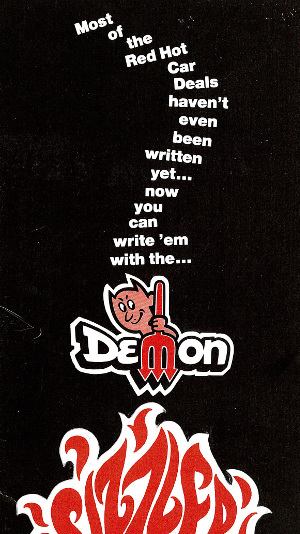
In conclusion, Dodge Demon used a devilish little cartoon character holding a pitchfork as a logo to promote some of the Dodge Demon models. Today Dodge Demon models have become very collectible among auto enthusiasts.
A special thanks to Robert Tate, Automotive Historian and Researcher, for contributing the story to the MotorCities Story of the Week program. Photos courtesy of Robert Tate's personal collection. (Bibliography: Mc Pherson A. Thomas, “The Dodge Story," Crestline Publishing, 1975)
For further information on photos please visit http://www.detroitpubliclibrary.org/ or email This email address is being protected from spambots. You need JavaScript enabled to view it.. Please do not republish the story and/or photographs without permission of MotorCities National Heritage Area.
If you would like to contribute an article for the MotorCities newsletter, email This email address is being protected from spambots. You need JavaScript enabled to view it. or call 313-259-3425.

